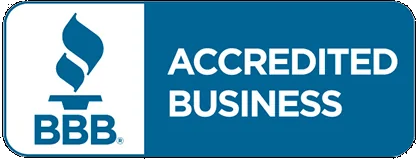Jumbo Loans
What is a Jumbo Loan?
A Jumbo Home Loan is a mortgage option designed for buyers looking to finance high-value or luxury homes that exceed the standard conforming loan limits. While conventional loans must stay within the loan caps set by Fannie Mae and Freddie Mac, Jumbo Loans provide significantly more flexibility. Depending on the lender, loan program, and local market conditions, borrowers can finance properties valued at up to $3 million or more.On November 25, 2025, the Federal Housing Finance Agency (FHFA) announced the updated conforming loan limits for 2026. With this adjustment, most U.S. counties now classify mortgages above $832,750 as Jumbo Loans — a $26,250 increase from the previous year’s limit. This increase reflects rising home prices and helps buyers access higher loan amounts without unnecessary restrictions.
Jumbo vs Conventional Loan?
The difference between a jumbo home loan and a conventional home loan is primarily the size of the mortgage. A Conventional loan is for mortgage loans up to $832,750, while a Jumbo loan is for mortgages that exceed this limit. As a result of the increased risk, Jumbo loans usually have more stringent qualifying requirements such as a higher credit score and the need for additional reserves. Another key difference is that Jumbo loans generally don't require private mortgage insurance (PMI), regardless of the down payment. Conversely, Conventional loans typically require private mortgage insurance when the down payment is less than 20%.
What are the Requirements for a Jumbo Loan?
In order to qualify for a jumbo home loan, you'll need a good credit score and substantial reserves. If you're looking to secure a higher-value mortgage, it's important to meet specific eligibility criteria that demonstrate your financial readiness. Below are some of the aspects you need to consider to increase your chances of jumbo loan approval:
Credit Score: A good credit score is essential to demonstrate your creditworthiness. While a FICO score of 680 is generally considered good, aiming for a higher score can enhance your chances of qualifying for a jumbo loan.
Reserves & Assets: Jumbo loans tend to be more cautious and require more "cash reserves" than conventional loans. Having substantial reserves is seen as a way to mitigate the added risk of jumbo loans. These reserves are funds that you can access after your closing, which can come from various sources such as checking, savings or any investment accounts. Typically, lenders will require you to have reserves equal to at least 6 months' worth of mortgage payments. It's important to note that the specific reserve requirements for jumbo loans can vary depending on the exact Jumbo loan product and other factors, such as the loan-to-value ratio.
Low Debt-to-Income Ratio: Lenders pay close attention to your debt-to-income ratio, as it indicates your ability to manage your current debts along with a new mortgage. If your debt-to-income ratio is too high, it may indicate that you have too much debt and may struggle to make your mortgage payments. Jumbo loans pose a higher risk to investors, which is why Lenders typically require a lower debt-to-income ratio. The maximum Debt-to-Income ratio is determined by Fannie Mae & Freddie Mac, but not to exceed 50% of your gross income.
Higher Down Payment: Unlike conventional loans, which can have lower down payment requirements, jumbo loans often mandate a higher down payment. You might need to put down 10% or more of the property's value as a down payment, which requires thorough financial planning.
Property Type: It's important to note that not all properties are eligible for Jumbo home loans. To qualify, the property must be a single-family home, condo, townhome, or a 2-4 unit property. The home can either be purchased as a primary residence, second home or investment property. Commercial properties however, are not eligible for the Jumbo loans offered through Onshore Mortgage, LLC.
Second Appraisal: In some cases, a Jumbo loan might require a second appraisal to ensure the property's actual value aligns with the anticipated loan-to-value ratio. This step safeguards both you and the lender against potential valuation discrepancies.
Are There Restrictions on What I Can Use My Jumbo Loan For?
One of the notable advantages of Jumbo loans is the flexibility they offer in terms of usage. Unlike some specialized loans that restrict the usage to specific purposes, Jumbo loans come with relatively few limitations. You can use a Jumbo loan to finance various types of luxury properties, including single-family homes, condominiums, townhomes, or 2-4 unit properties. The property can either be a primary residence, second home or used as an investment. This versatility grants you the freedom to choose the property that aligns with your preferences and needs.
What is the Process for Obtaining a Jumbo Home Loan?
If you're considering applying for a Jumbo home loan, it's important to understand the application process and requirements. Although it's similar to applying for a conventional loan, there are some additional considerations due to the higher loan amount. Here's a step-by-step guide to help you navigate the process:
- Mortgage Application: Begin by completing your mortgage application with a Mortgage Broker experienced in Jumbo loans. The application collects essential information about your financial background, employment history, and the property you intend to purchase.
- Income and Asset Documentation: Prepare thorough documentation of your income and assets, including tax returns, bank statements, investment records, and employment verification. These documents substantiate your financial stability and repayment capacity. There are also Asset Only Loan options for borrowers with significant assets.
- Credit Check: Onshore Mortgage, LLC. will conduct a comprehensive "Tri-merge" credit check to assess your history and score. A solid credit profile reinforces your credibility as a borrower.
- Meeting Eligibility Requirements: Given the stricter criteria for Jumbo loans, ensure that you meet the requirements related to credit score, reserves, debt-to-income ratio, and down payment.
- Property Appraisal: A thorough appraisal of the property is essential to determine its current market value accurately. This step safeguards both you and the lender by ensuring the property's value aligns with your purchase price and anticipated value.
- Loan Underwriting: The underwriting process involves a meticulous review of your financial documents, credit history, property appraisal, and overall eligibility. This step ensures that the loan aligns with lending standards and risk assessments.
- Loan Approval: When evaluating a loan application, the lender will approve it if the borrower meets all the criteria and the property meets their standards. However, if any issues arise during the evaluation, The lender may request additional documentation or clarification on certain aspects of the application. These conditions must be met before the loan can proceed to closing.
- Closing: Upon receiving a "cleared-to-close" from underwriting, you'll proceed to the closing. This involves signing the necessary documents, including the Promissory Note, Mortgage and Deed as well as any lender specific documents.
In the pursuit of purchasing high-value property, it's vital to understand Jumbo home loans. By grasping the differences between Conventional Loans and Jumbo Loans, fulfilling eligibility requirements, and maneuvering through the application process, you can set yourself up for success in acquiring the dream home you've always wanted. If you're looking for competative interest rates on your mortgage be sure to contact Onshore Mortgage, LLC. to learn more about the process and how to apply for a jumbo loan.
*Credit and income restrictions do apply. Please visit our Disclosures page for a detailed breakdown of all loan types.

.webp)

